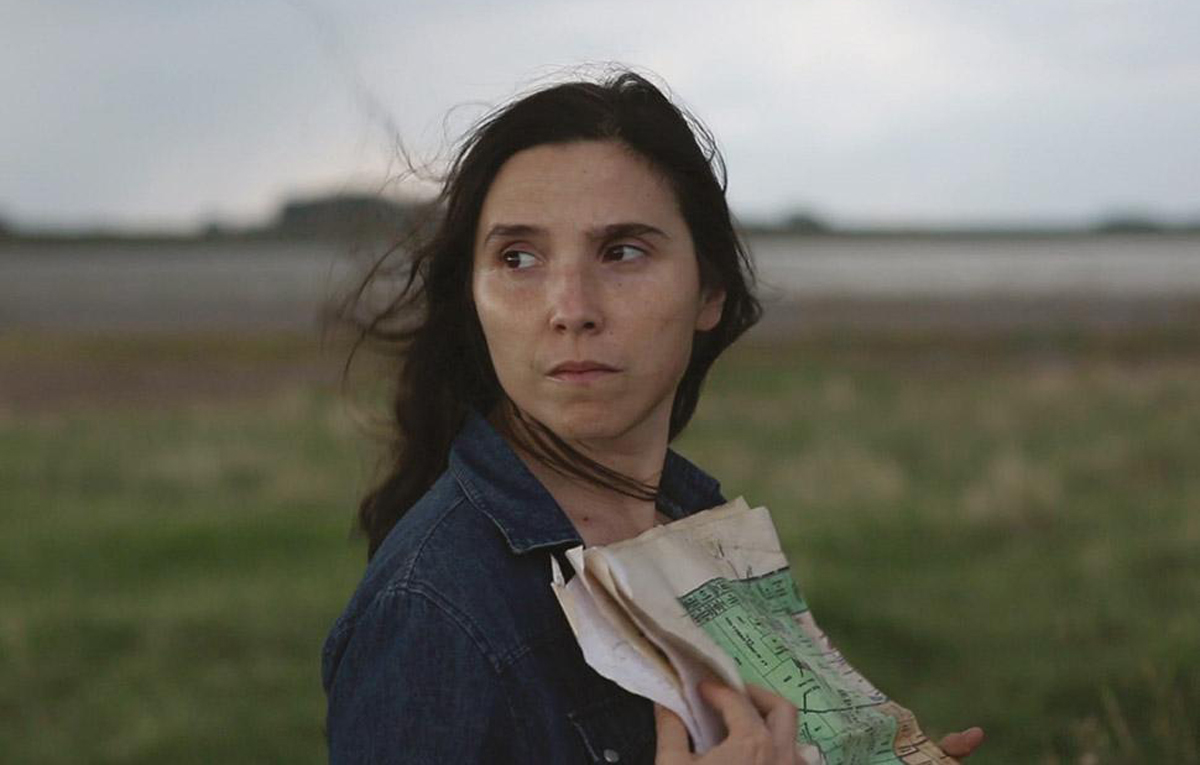“I think I’ve become the only witness of a little mystery,” Laura (Laura Peredes) confides to Ezequiel (Ezequiel Pierri) innocently enough in “Trenque Lauquan,” as excited to share the secret with someone else as she has been to keep it for the past few weeks. Having a regular guest spot on the local radio station’s “Sea of News,” she will often lose herself in hours of research for the brief “Women Who Made History” segment, resurfacing intriguing historical heroines and her latest deep dive into the life of the Russian revolutionary Alexandra Kollontai at the library has led to a wonderful discovery as some taped-together pages conceal a love letter, which leads to others spread out on site that have been sitting around since the 1960s. One gets the impression that although there are surely more than a few things hidden in the quiet Argentinian town Laura resides in in Laura Citarella’s enchanting drama, there aren’t many that carry such a sense of adventure and as Ezequiel listens on, the humble driver gets swept up in Laura’s enthusiasm as if she’s unlocked a portal to the past that they can both step inside.
However, “Trenque Lauquan” resolutely remains the story of one, in spite of its two-part, four-hour runtime that it earns every minute of as Laura tries to get to the bottom of the provenance of the letters, which appear to have so consumed her that she’s disappeared, leaving Ezequiel and her boyfriend Rafael (Rafael Spregelburd) to start piecing together their own clues to try to find her whereabouts. Paredes might be familiar to audiences from playing a host of characters in “La Flor,” the sprawling 2018 drama that unspooled over 13 hours that Citarella was a producer on and whereas the director isn’t working on that large a canvas, she and Paredes, who also serves as a co-writer, clearly believe there are a variety of personalities stirring inside every one of us, making Ezequiel and Rafael’s search a seemingly futile exercise from the start when they are looking for a different person from each other. To Rafael, with whom Laura was about to commit to settling down in a newly remodeled home together, she is “an almost biologist,” keeping her head down in books and looking into new species of plants, though it seems like he can’t see her insatiable curiosity as Ezequiel, who knows her from his work for the radio station, does, which is where her passion is infectious.
Citarella expertly drops audiences into “Trenque Lauquan” in such a way that Laura is able to keep something to herself as everyone around her holds a different idea of her in their head, and the film itself uses the fact it’s broken into two parts to explore surface-level intrigue before digging underneath, with its second part less literal-minded than the first when Laura’s investigation comes to involve a strange occurrence at the town lake, thought to be an apparition by some and a political charade by others. What truth the director is able to make tactile is how Laura strives for her own small slice of immortality that the world might take notice of while content to do so under the radar, unbothered by assumptions made about her abilities or her interests. An open mind, however, can also close off certain areas where she lives, finding others a little more prudish or unadventurous than she is and in outlining Laura’s ambition so well when what she wants can be so abstract, Citarella shows her own, weaving in and out of various perspectives with individual chapters and employing deft musical choices, ranging from the “Suspicious Minds” ringtone on Laura’s phone to the jaunty classical music that scores any time her mind starts to race, to express what characters may not be able to articulate for themselves but bring out the multitudes within. In the end, it’s only fitting that the director pushes the form to its limits to capture the totality of the human experience.
“Trenque Lauquen” will screen again at the Venice Film Festival on September 9th at 1:30 pm at the Sala Pasinetti and September 9th at 7:30 pm at the Sala Perla.




